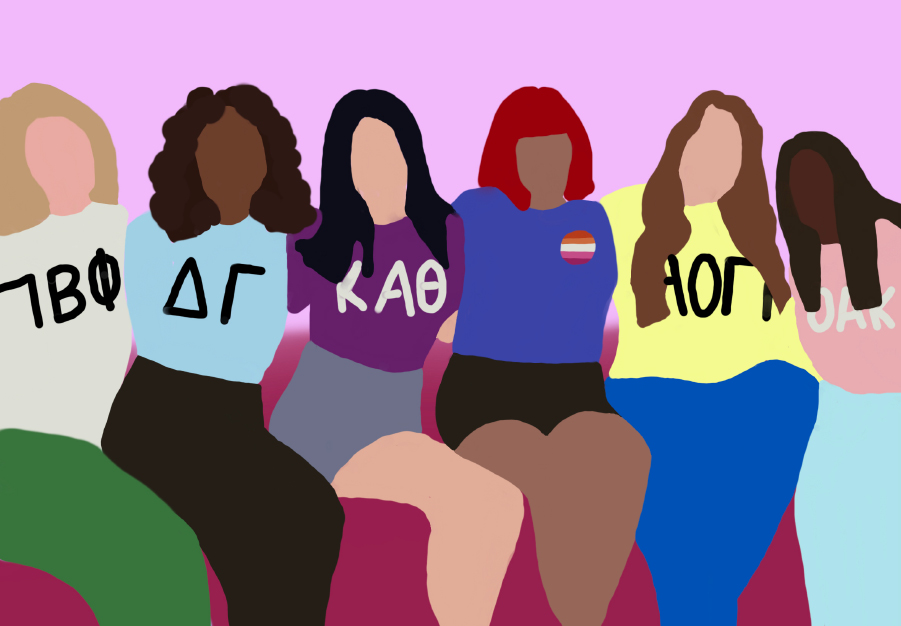I came to the University of Chicago in the fall of 2017 as a confused and slightly burned out 18-year-old with only a semblance of a plan for the future and absolutely no idea what I wanted out of my college experience. I had a number of disparate interests throughout high school—creative writing, competition math, among others, all of which I dabbled in and none of which I could ever commit to. The interests I was (probably too) committed to—watching Twin Peaks, following the Seattle Seahawks’ every offseason move—seemed misaligned with any successful path through college.
And amid all the inevitable struggles of being a first-year in college—adjusting to life on my own, making friends, trying to handle classes that were more difficult than any I had ever taken before—the process of diving into my interests and figuring out what I wanted to do with my four years here fell by the wayside. I flew back home in June feeling nearly as lost as I had felt the previous October. I still had no big-picture idea of the things I wanted out of college, both in terms of major and extracurriculars, and very little clue how to attain the things I did know I wanted.
Looking back, I wish my academic adviser had been more helpful in keeping me on track in school and in helping me plan out a possible path through college. There are certainly things that I, on my own, could have done differently. I could have more proactively sought out advice and researched majors. I could have spent more time poring over the course catalog and department websites on my own. But I was unmotivated, emotionally drained by the hectic high school schedule that seems so commonplace now, and overwhelmed by all the novelties of college. I needed an academic adviser that was more actively involved in my academic life, someone who could warn me of potential pitfalls and point me in the right direction when I clearly needed it.
I know that academic advising can often be a difficult job, given the number of students per adviser (there are 18 college advisers in the Academic Advising Office for over 6,000 undergraduates) and the wide range of responsibilities of the role. When each adviser is responsible for around 300 students, juggling the myriad forms, deadlines, and individual student issues is an understandably tall task. But an academic adviser occupies an important position in undergraduate life: guiding students through the practical and bureaucratic complexities of college course-loads and serving as a first point of contact for students who are still unsure of what they want to do with their four years in college. And in my first year, I don’t feel like I received the guidance I needed.
Part of that is, of course, also on me. I probably could have made it a point to talk to my academic adviser more often. But, in truth, I found the meetings I had with my adviser frustrating and mostly unproductive. She would usually just tell me that my current plan of action was fine (which it often wasn’t, as I would realize in hindsight) and segue into talking about my extracurriculars and my life outside of school. I appreciated the effort to get to know me in a non-academic context, but ultimately, she was an academic adviser and I felt that the academic advice I received from her was often either incomplete or simply incorrect.
She never asked me about my steadily declining grades in physics and never gave me a rundown of the logistical difficulties of double majoring when I mentioned my interest in majoring in both math and creative writing. Earlier this year, she had difficulty explaining why my transfer credit wasn’t being processed and was often too busy to respond to e-mails. There are many things I eventually figured out on my own, either through talking to upperclassmen or seeking out other advisers, but it was disappointing that so many pieces of information that could be gleaned from an academic adviser had to come from connections that many first-years have not yet developed.
Many fellow students I’ve talked to over the past couple weeks also have similar stories to tell, and indeed, it seems that the prevailing narrative surrounding much of the Academic Advising Office is this: They just aren’t that helpful. One student complained that his adviser didn’t seem to know much about the economics major and that he ended up taking a statistics sequence out of order because he didn’t know any better. Multiple students noted that while their original advisers had been helpful, those advisers were promoted, often mid-year, and replaced by inexperienced advisers. In one case, an adviser wasn’t available during an essential add/drop period because she was still in training. These mid-year promotions, which frequently involve advisers being promoted to other positions within the University as opposed to leaving for other jobs, are especially frustrating. They sever the student-adviser relationship that has often taken countless meetings to build and reveal a blatant administrative disregard for the role that advisers play in student life during the academic year.
There are, of course, excellent advisers in the college, who are both supportive and deeply knowledgeable about the logistics of academic life at UChicago, or at least able to refer advisees to other sources of support and knowledge. Advising, then, becomes a hit-or-miss situation. And if, by luck of the draw, you happen to miss out on one of the great advisers, or if your adviser is promoted mid-year, the challenges of managing your courses and planning out a suitable path to graduation appear much more daunting.
While I’m unclear on the exact inner workings of the Academic Advising Office, the problems with it, as far as I can see, are twofold: Advisers have too much on their plate, and, in some cases, lack the working knowledge of the University’s academic offerings to offer relevant and accurate advice. In order to improve the standard of advising, the University needs to make an active effort to hire additional advisers to alleviate the individual workload and ensure that advisers have the tools to remain up-to-date on current course offerings and requirements.
The academic advising system as it stands seems to serve a bureaucratic purpose—to fill out required forms and sign off on major declarations. A more functional advising system would allow advisers to develop more personal relationships with their advisees by reducing the number of students per adviser. It would also more effectively incorporate advisee feedback to create a system that actually responds to student needs and actually has the ability to offer the advice and guidance that many students need. The Advising Office can do a great deal of good in terms of helping students through their already stressful time here at UChicago, and if the University is serious about improving student life, it should make academic advising a more uniformly supportive and helpful resource.
Lucas Du is a second-year in the College.







